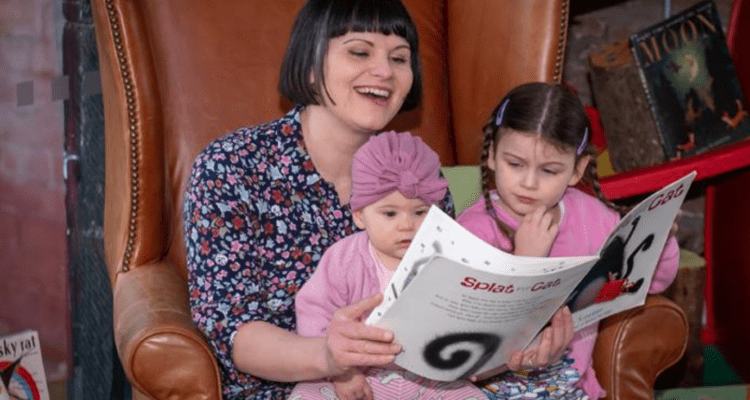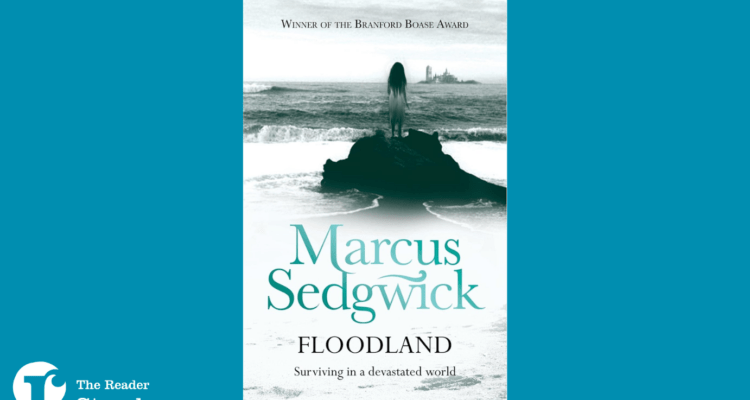Conrad and Get Into Reading
 On hearing that my attempt to become The Reader Organisation’s new Communications Intern had been successful, I found myself wanting to learn as much as possible about the ever-expanding charity before I started, and so decided to put those ever-lauded ‘transferable skills’ learnt during my time as an English undergraduate to the test by doing some research. I had previously helped out as a volunteer back in 2008, before TRO moved to its new headquarters in West Everton, which meant I still had lots of leaflets and information booklets lying around in my room…somewhere. Rummaging through four years of woefully managed university and school folders and notes, I finally fell upon all sorts of information regarding plays, projects, libraries and services which only added to my sense of confusion. I was going to need to know about TRO if I was to make a positive contribution during my time there, but I felt baffled by a social enterprise which has recently gained so much national and international attention.
On hearing that my attempt to become The Reader Organisation’s new Communications Intern had been successful, I found myself wanting to learn as much as possible about the ever-expanding charity before I started, and so decided to put those ever-lauded ‘transferable skills’ learnt during my time as an English undergraduate to the test by doing some research. I had previously helped out as a volunteer back in 2008, before TRO moved to its new headquarters in West Everton, which meant I still had lots of leaflets and information booklets lying around in my room…somewhere. Rummaging through four years of woefully managed university and school folders and notes, I finally fell upon all sorts of information regarding plays, projects, libraries and services which only added to my sense of confusion. I was going to need to know about TRO if I was to make a positive contribution during my time there, but I felt baffled by a social enterprise which has recently gained so much national and international attention.
Fortunately, amongst the rubble, I stumbled across issue No.29 of The Reader Magazine. Here I found editorials, reviews, discussions, poems, short stories and essays, one of which particularly caught my attention as it concerned one of my favourite authors, Joseph Conrad. Andrzej Gasiorek’s essay, ‘The Call of the Human’, argues that amongst the pessimism which characterises much of Conrad’s work is something undeniably human and honest which cannot be ignored. Gasiorek ends his essay with the following powerful words:
“He is a great writer. One can only enjoin others to discover in his novels the challenges and joys one has oneself discovered. Read him.”
This unashamed celebration of the whole oeuvre of an author by a literary critic is something which I found refreshing. Allowing myself to be swept along by this honest enthusiasm, I did just as he had asked, and dug out my first-year university copy of Conrad's Heart of Darkness.
Having attempted to get to grips with Conrad’s foray into the Belgian Congo whilst undertaking to write an essay on colonialism and literature at university, I felt reasonably confident that I was aware of all the major themes Heart of Darkness embodies. Yet there was one key difference between my first reading and my Gasiorek-inspired return, namely that I had never been to or experienced a Get Into Reading group run by TRO. My first reading group session with TRO had taken place just days before and quite suddenly opened my eyes to an aspect of the story I had never truly given any thought to before.
Heart of Darkness is a fascinating novella. Its story – a review of which was posted on this blog in our Recommended Reads series – is one which has continued to stir impassioned debate in the world of literature since its 1902 publication. Yet it is the story’s form, the way it is told, which struck me as being not just affecting, but also extremely relevant to my immersion into TRO.
The action of the novel takes place in the past and is narrated by one character, Marlow, who is part of the crew of a ship about to set sail on an expedition. The action of the present involves the crew members sitting together on their ship on the River Thames, whilst Marlow shares his tale of adventure, death and discovery amongst the forests of the Belgian-controlled Congo. The story is orally transmitted by Marlow, one character in an early-twentieth century naval version of a Get Into Reading group. In fact, once Conrad’s narrator, who is one of the crew members aboard the ship, has set the scene, the stage is set for Marlow, whose story is so electrifying that we as readers often forget that it is one of the characters telling the story out loud. Conrad brings us sharply back to the present at the novel’s close with a short, abrupt reminder that Marlow has been speaking to the other characters the whole time:
“Marlow ceased, and sat apart, indistinct and silent, in the pose of a meditating Buddha. Nobody moved for a time.”
For me, Conrad intensifies the impact of Marlow’s story by having him read it out loud to the other characters. The shock when Marlow stops telling the story is profound and, just as the characters are unable to move, so we the reader feel powerfully moved by this story which has been read aloud and which has now come to an end.
My experience with reading groups as part of TRO’s hugely successful Get Into Reading project opened my eyes to this aspect of Conrad’s famous novel. I am thankful that I listened to Gasiorek’s call to ‘read him’. I am also glad to have become a part of a wonderful organisation who, like Conrad himself, are championing the importance of oral story telling.
Share
Related Articles

Reader Revisited: Reading with Looked-After Children by Grace Frame
We're taking a trip down memory lane and revisiting articles from The Reader Magazine. This article first appeared in issue…

We’re Hiring! Join our Front of House Team
We're hosting a Recruitment Day at the Mansion House, Calderstones Park on Tuesday 16 April as we look to expand…

The Storybarn Selects… From The Reader Bookshelf
Our last deep dive into the 2023/24 Children and Young People's Reader Bookshelf is a review of Floodland by Marcus Sedgwick…


